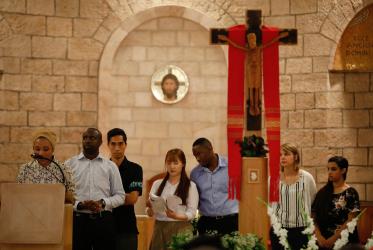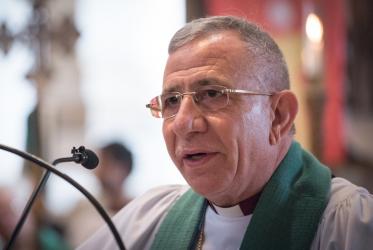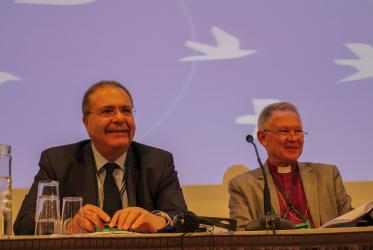Displaying 61 - 80 of 119
06 September 2017
Holy work for the Holy Land
29 March 2017
Palestinian tapestry installed at the WCC
29 March 2017
USA pastors reflect on Holy Land pilgrimage
14 March 2017
Bishop Younan awarded Niwano Peace Prize
22 February 2017
From Bethlehem, WCC general secretary: “Together we are stronger”
08 December 2016
WCC general secretary reflects on peace in Palestine and Israel
20 September 2016
WCC set to observe World Week for Peace in Palestine and Israel
16 September 2016
Owe Boersma will strive for equilibrium as EAPPI coordinator
18 August 2016
Is there hope for the Middle East?
25 June 2016
Peace, health and education are Gaza's future
24 May 2016








